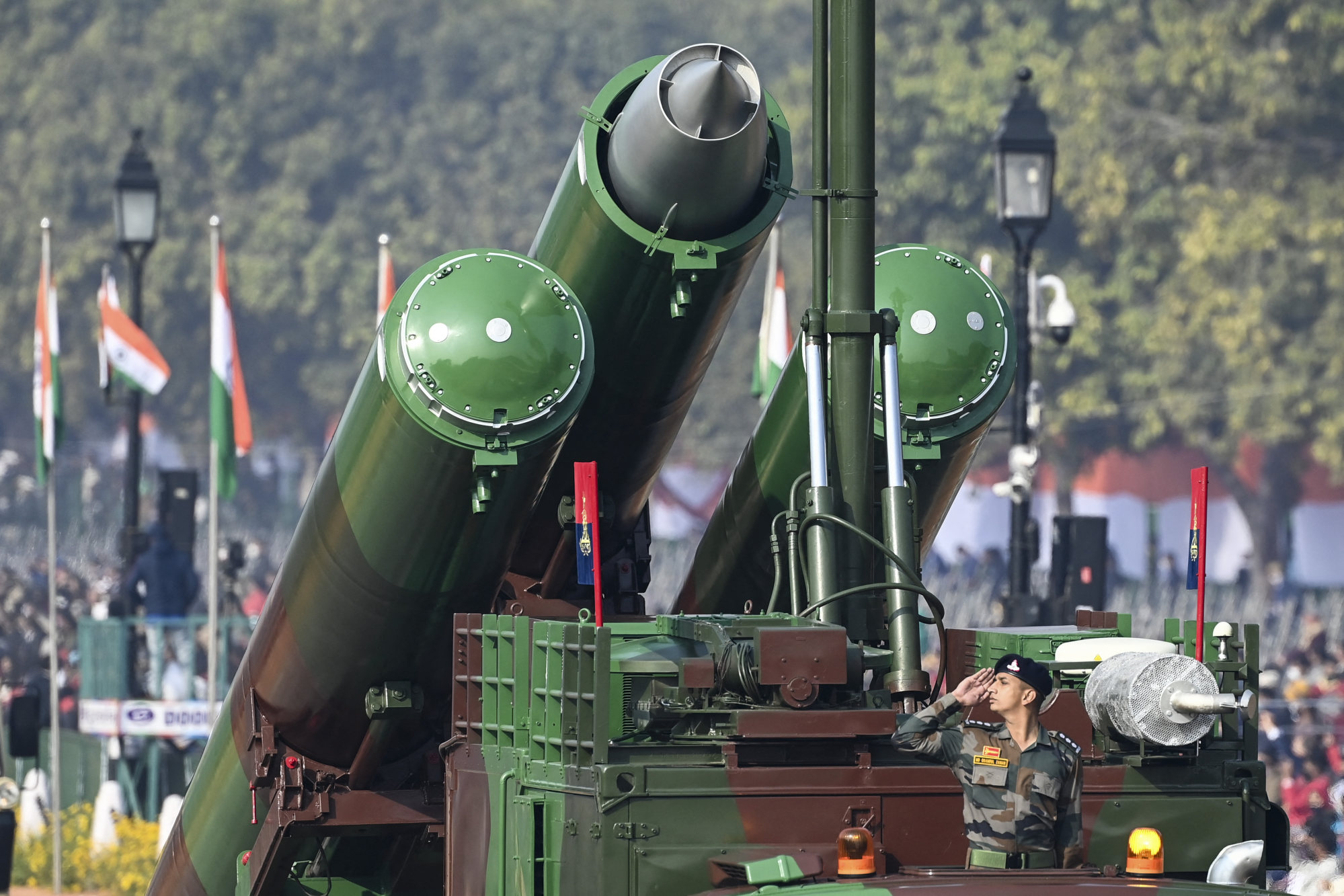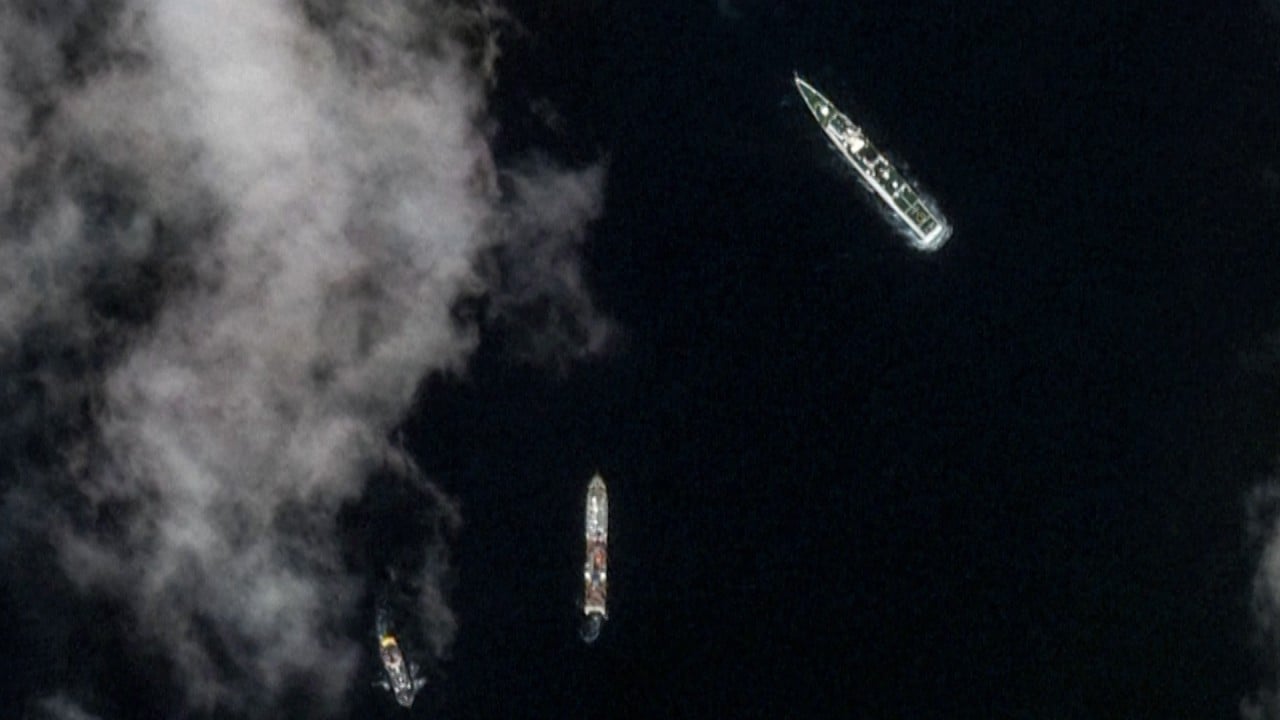Speaking at the opening ceremony on Monday, Philippine armed forces chief General Romeo Brawner Jnr said the drills represent “the essence of unity, collective responsibility and enduring partnership” between the Philippines and the US “and our partners”.
New missile systems
As part of the Balikatan drills, Filipino soldiers will familiarise themselves with US military hardware and test the Philippines’ newly-acquired assets and equipment.
Military Sealift Command, the US Navy’s replenishment and transport arm, said it had delivered 554 pieces of equipment and shipping containers for the exercises to Subic Free Port, northwest of Manila, and would conduct a separate bilateral exercise with the Philippine military. It gave not further details about the equipment.
Two sophisticated missile systems, the Spyder and Typhon, are set to be demonstrated for the first time in the Philippines as part of the drills.
The Spyder – a mobile, ground-based, air defence system – is currently in use by the Philippine Air Force’s 960th Air and Missile Defence Group.
Will China hold back during the US-Philippine Balikatan military drills?
Will China hold back during the US-Philippine Balikatan military drills?
Army Colonel Michael Logico, the Philippine military’s spokesman for this year’s Balikatan exercises, told reporters on March 5 that the drills would “test the interoperability between our weapon systems and that of the United States.”

Renato de Castro, an international-relations professor at De La Salle University in Manila, described the purchase as part of the Philippine military’s shift from internal security to external defence.
The BrahMos missiles would serve as a “backup through coastal defence”, he explained in an interview on state broadcaster PTV, while the military was still developing its naval capabilities to guard the country’s territorial waters and exclusive economic zone and the air force was honing its aerial-denial capabilities.
De Castro added that since “we don’t have the resources, the technical know-how and training” to conduct external defence, the country’s armed forces were using the Balikatan exercises to gain these skills. There has been no announcement on whether BrahMos missiles will be used during the joint drills.
US$2.5 billion in military aid?
To assist the rapid switch from internal to external defence, the Philippine military is now drawing up a lengthy wish list, with two American senators from rival parties signalling their intention to help make these wishes come true.
Republican Bill Hagerty and Democrat Tim Kaine, both members of the Senate Foreign Relations Committee, jointly filed a bill to the US Congress on April 11 “to modernise the defence capabilities of the Philippines and for other purposes.”
The Philippines Enhanced Resilience Act of 2024 aims to authorise grant assistance of US$500 million per year for five years starting from 2025 under the US Foreign Military Financing programme, for a total of US$2.5 billion.
Under the proposed measure, all purchases would be made exclusively from American companies. The goal is to enhance the Philippines’ defence capabilities across a range of areas, including coastal and air defence, maritime security, intelligence, surveillance, reconnaissance, and cybersecurity.

It’s unclear at this point when, or if, the US Congress might pass the bill.
Surveys indicate that most Filipinos approve of closer military cooperation with the US, but a statement criticising the drills was issued on Monday by Bayan Muna (Country First), a member of the left-wing Makabayan political coalition.
“The warmongering thrust of the biggest Balikatan ever is mainly for the advancement of US geopolitical interest in the Asia-Pacific region,” said the statement attributed to party executive vice-president Carlos Zarate.
“[It is] a pretext for training the Philippine forces as US pawns in its proxy war with China.”


